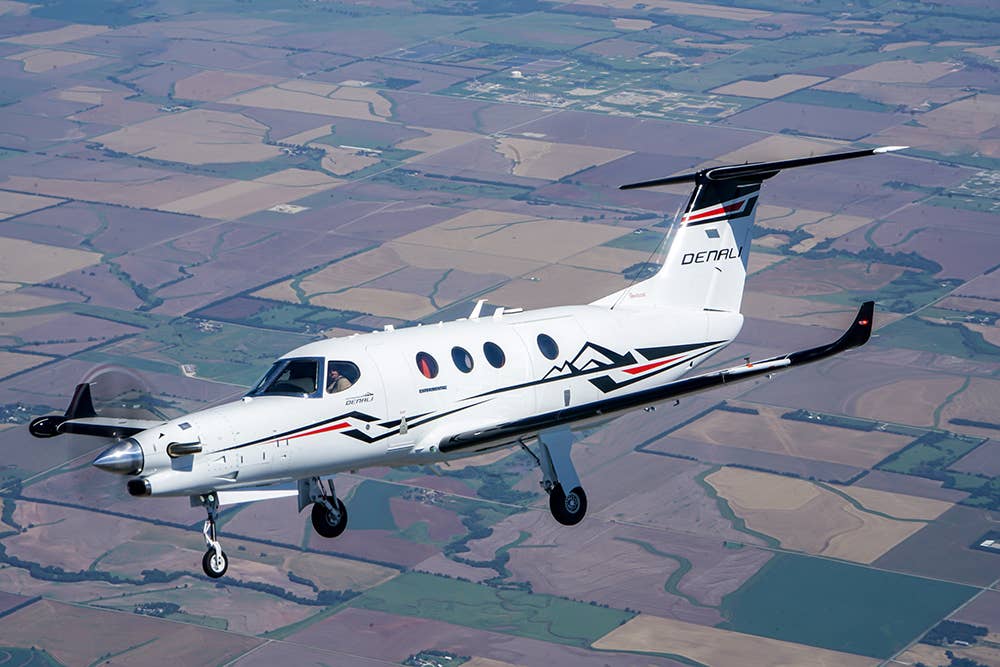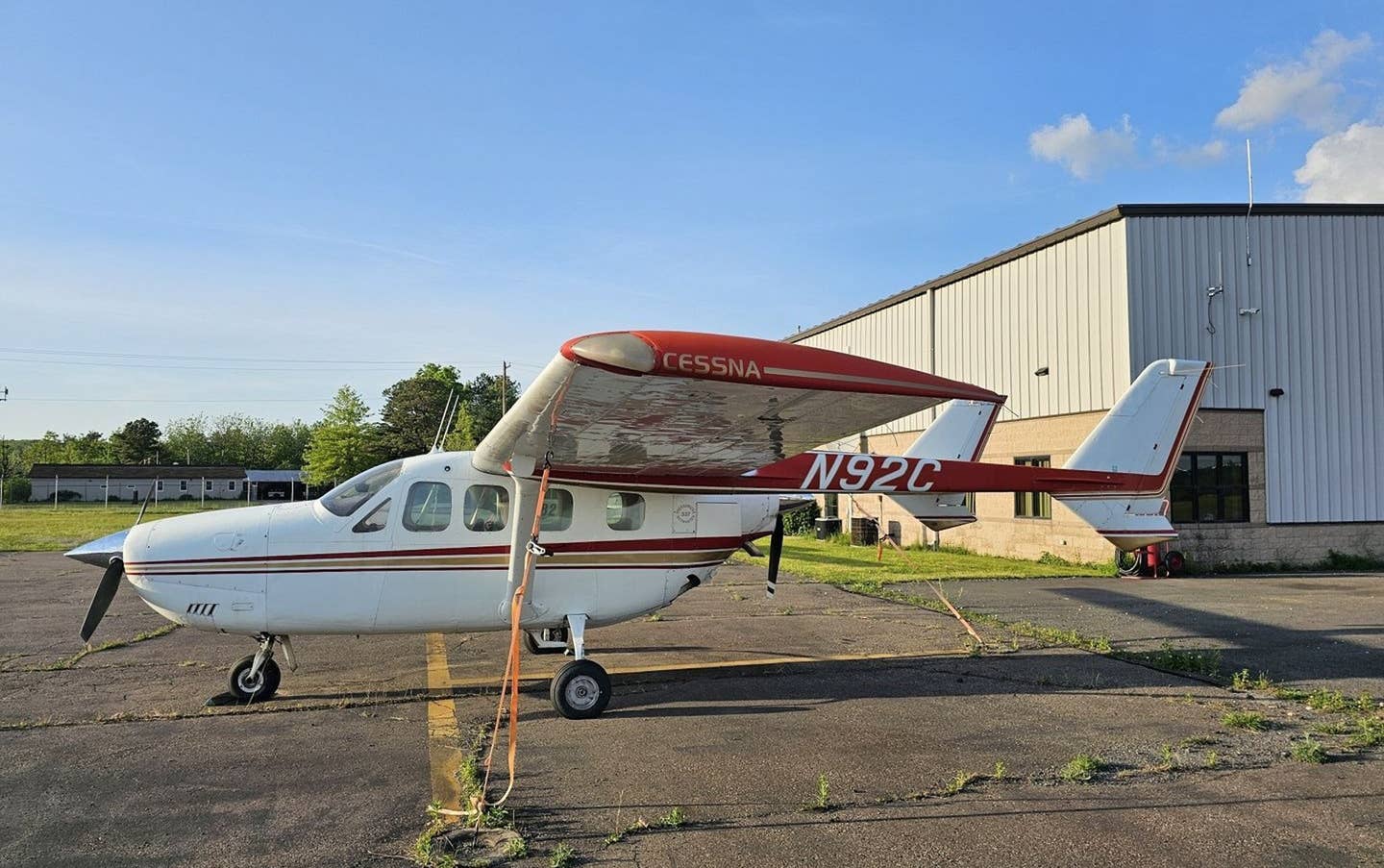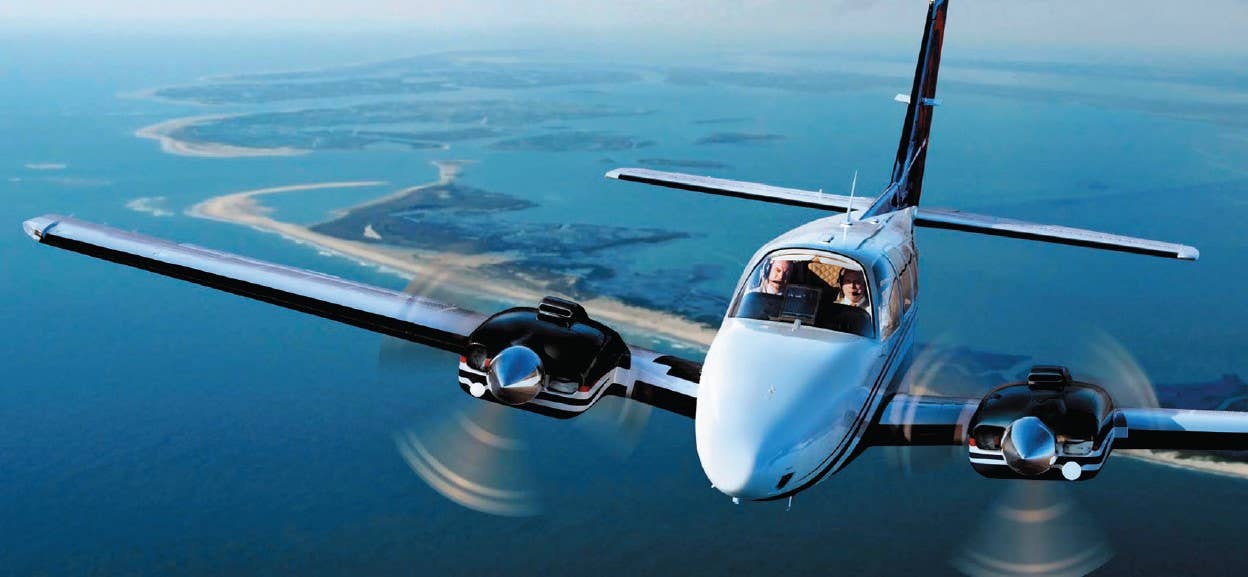Textron Adds Second Beechcraft Denali to Test Program
Flight lasted 2 hours and 1 minute and the aircraft reached a max altitude of 15,500 feet

The Denali is a single-engine turboprop, T-tail, clean-sheet-design powered by a GE Aviation Catalyst powerplant. [Courtesy: Textron Aviation]
Textron Aviation's (NYSE:TXT) test flight program of the Beechcraft Denali expanded this week as the second Denali took to the skies. The aircraft is the first post-prototype Denali to be flown. The Denali is a single-engine turboprop, T-tail, clean-sheet-design powered by a GE Aviation Catalyst powerplant. The prototype first flew in November of last year. To date, the program has accumulated more than 250 flight hours.
The second test aircraft joins the first Denali prototype in the flight-test program that substantiates the segment-leading performance expectations of the Denali. The flight lasted 2 hours and 1 minute, reaching a max altitude of 15,500 feet with a max speed of 240 ktas.
“This flight is another vitally important step for the Beechcraft Denali program as the aircraft will be used primarily for testing aircraft systems like avionics, cabin environmental control, and ice protection,” said Chris Hearne, senior vice president, engineering and programs. “The team has made great progress, accomplishing key goals in the flight test program, and the Denali team heads into the second half of 2022 with a great deal of momentum.”
About the Aircraft
According to the development team, the Beechcraft Denali is designed to achieve a cruise speed of 285 knots and full fuel payload of 1,100 pounds. The Denali is intended to have a range of 1,600 nm at high-speed cruise with one pilot and four passengers.
The Denali is the first aircraft to be powered by GE’s Catalyst engine paired with a McCauley 105-inch diameter, composite five-blade, constant-speed propeller—full feathering, with reversible pitch and ice protection. The FADEC-equipped, 1,300 shaft hp (SHP) rated turboprop engine has a single-lever power and propeller control designed to reduce pilot workload.
The cockpit features the Garmin G3000 avionics suite with high-resolution and touchscreen controllers. An integrated Garmin autothrottle is now a standard feature, interfacing with the automatic flight control system (AFCS) and flight management system (FMS) designed to provide easy speed control throughout all phases of flight from takeoff to touchdown.
The Beechcraft Denali passenger cabin has a flat floor designed for versatility. It is easily convertible between passenger and cargo configurations. The cabin, which has large windows and a forward refreshment cabinet, can be configured for six to nine seats. The baggage compartment can be accessed in flight. There is also an option for an externally serviceable belted lavatory in the rear of the cabin.
Turboprop Comparison: By The Numbers
| Single-Engine Turboprop* | Mfr Base Price | Engine | Seats (Max Pax ) | Max Takeoff Weight | Max Full Fuel Payload | Max Range | Max Cruise Speed |
| Beechcraft Denali** | $5.999 million | GE Aviation Catalyst | 5 + 1 | NYR | 1,100 lbs. | 1,600 nm | 285 ktas |
| Pilatus PC-12 NGX | $4.48. million | Pratt & Whitney PT6E-67X | 10 + 1 | 10,450 lbs. | 988 lbs. | 1,803 nm | 290 ktas |
| Epic E1000 GX | $4.19 million | Pratt & Whitney PT6A-97A | 5 + 1 | 8,000 lbs. | 1,100 lbs. | 1,560 nm | 333 ktas |
| TBM 960 | $5 million (2023) | Pratt & Whitney PT6E-66XT | 5 + 1 | 7,615 lbs. | 888 lbs. | 1,730 nm | 330 ktas |
| Piper M600/SLS | $3.305 million | Pratt & Whitney PT6A-42A | 5 + 1 | 6,000 lbs. | 658 lbs. | 1,658 nm | 274 ktas |
| Kodiak 100 | $2.462 million | Pratt & Whitney PT6A-34A | 2 + 8 | 7,255 lbs. | 1,200 lbs. | 1,132 nm | 183 ktas |
| Cessna Grand Caravan | $2.48 million | Pratt & Whitney PT6A-114A | 1 + 9 to 13 | 8,807 lbs. | 1,286 lbs. | 912 nm | 185 ktas |
*all data based on manufacturer’s specs and subject to change
**not in production/pre-release numbers not verified by third party

Subscribe to Our Newsletter
Get the latest FLYING stories delivered directly to your inbox






